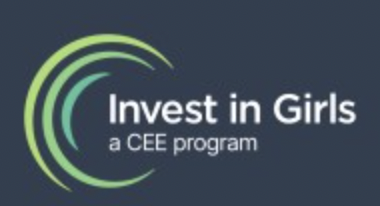
The Importance of Mentorship for HS Students
Everyone seems to be competing for the best grades and jobs, which can make growing up terrifying. The world is hard to navigate, and these difficulties are only exacerbated if you are first-gen, low-income, or don’t have the proper support systems.
Luckily, you may not have to go through this process alone! Introducing the idea of mentorship: the guidance of a more experienced person in academic or work settings. As a first-generation woman of color pursuing higher education, having formal and informal mentors has been a lifesaver. From reviewing college applications to talking me through job interviews, they have been instrumental to my development as a student and professional.
Let’s first distinguish between formal and informal mentorship. Formal mentorship is more structured, with a set number of more frequent meetings and a clear goal in mind. Informal mentorship, on the other hand, is more casual and less explicitly goal-oriented. Relationships formed through informal mentorship tend to be more organic and long-lasting. However, informal mentorships are also harder to come across. As someone who has participated in structured mentorship programs and had more informal mentors, each form of mentorship has its upsides and downsides. In more structured programs, where I was matched with mentors based on shared interests and goals, these kinds of relationships can start off rocky and feel awkward initially. Some people progress past that, but others may not mesh well with who they are matched with. While I love my informal mentors, I don’t keep in contact with them as much as I want to because we can get too busy to communicate.
Regardless of the kind of mentorship you come across, it can be incredibly beneficial for many reasons. Someone who empowers and advocates for you in new academic and professional settings can be the difference between having a positive and negative experience. Mentors can be role models, inspiring you to pursue different opportunities or helping you figure out your life goals. Personally, my mentors have helped me navigate professional settings, from learning how to answer interview questions to figuring out how to dress in the office. They can also provide guidance in more indirect ways; talking to my mentors and interacting with people I aspire to be like in the future has helped me improve my social skills overall.
While mentor-mentee relationships aren’t always strictly professional, mentees should maintain a certain level of professionalism. I run a mentorship program for high school girls interested in finance/business, and I’ve created some guidelines for them to follow. I’ll caveat this by saying that all mentor-mentee relationships are different and that these rules might not apply to everyone. However, this is just a general framework to operate around.
- Be respectful of their time. This means not emailing obscenely early/late; generally, I keep my communication limited from 9 am-7 pm. If you have something scheduled, do your absolute best to show up. Things happen, but you are responsible for communicating with your mentor that you are no longer available.
- Keep it professional. Your mentor is not your best friend, and you should avoid talking to them about things such as partying, partners, etc. On that note, do not pry into their lives. Some things about their work can be confidential, and don’t ask excessive questions about their partners/families.
- Demonstrate interest! While mentors and mentees learn from each other, mentorship relationships are formed on the basis of the mentee wanting to grow. Engage with your mentor in meaningful ways, and show that you are invested in your growth!
There are so many opportunities to find mentors, and I’ll end off by sharing a few ways. One program I can personally speak to is Invest In Girls, a program for female-identifying students to take financial literacy classes and connect with women in the business sector. I’ve been with this program for two years, and both of my mentors have been so inspirational. Students meet twice a month, once with their mentors exclusively and once with the entire cohort. Another program is the one I mentioned earlier, a program I run with Females in Finance. Females in Finance is a student-led program educating young women about financial literacy. This opportunity is available to those with a branch at their school, and students might want to begin a chapter of FIF at their school to gain access to these opportunities. While these programs are a great place to start, I also want to encourage you to look everywhere you can! There are so many people who will be more than willing to help you; all you have to do is ask.

Amazing advice!
Definitely will be referencing to this, plan on pursuing finance🙏🏽